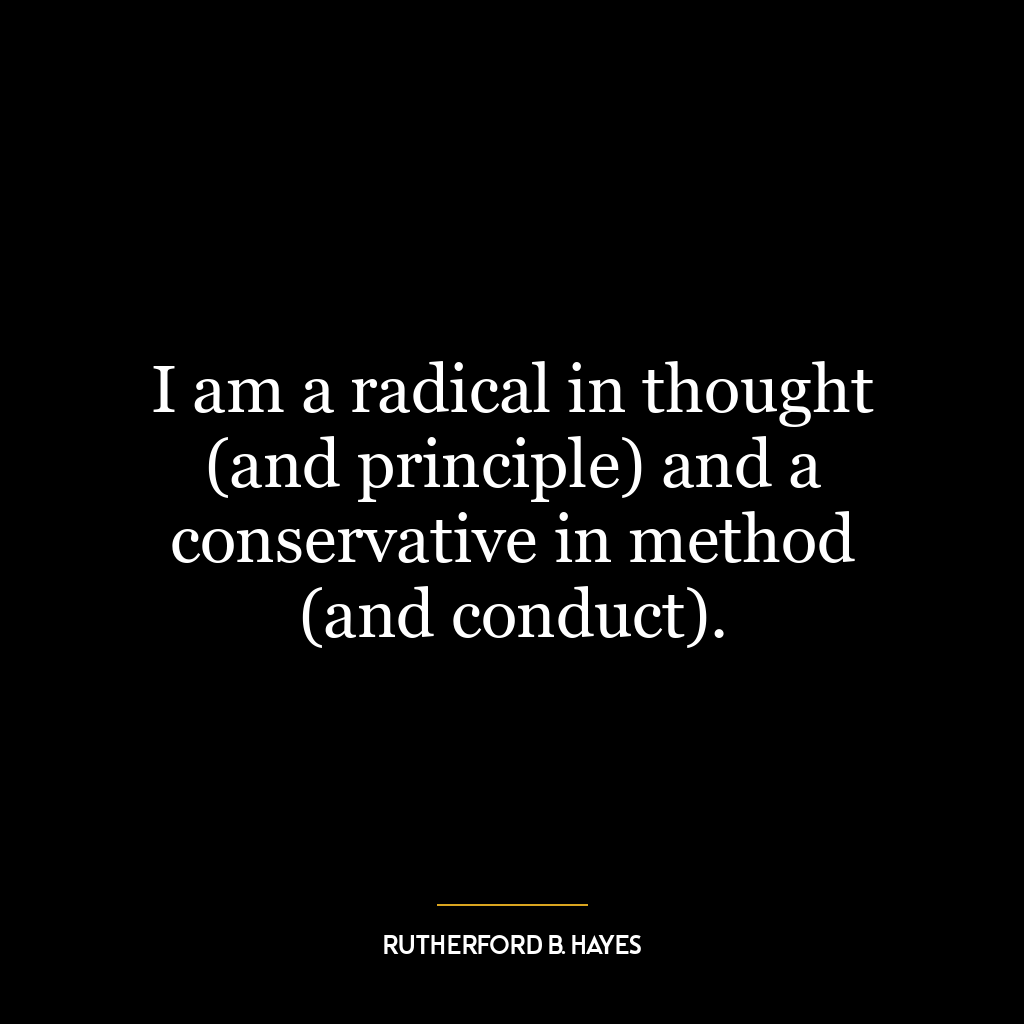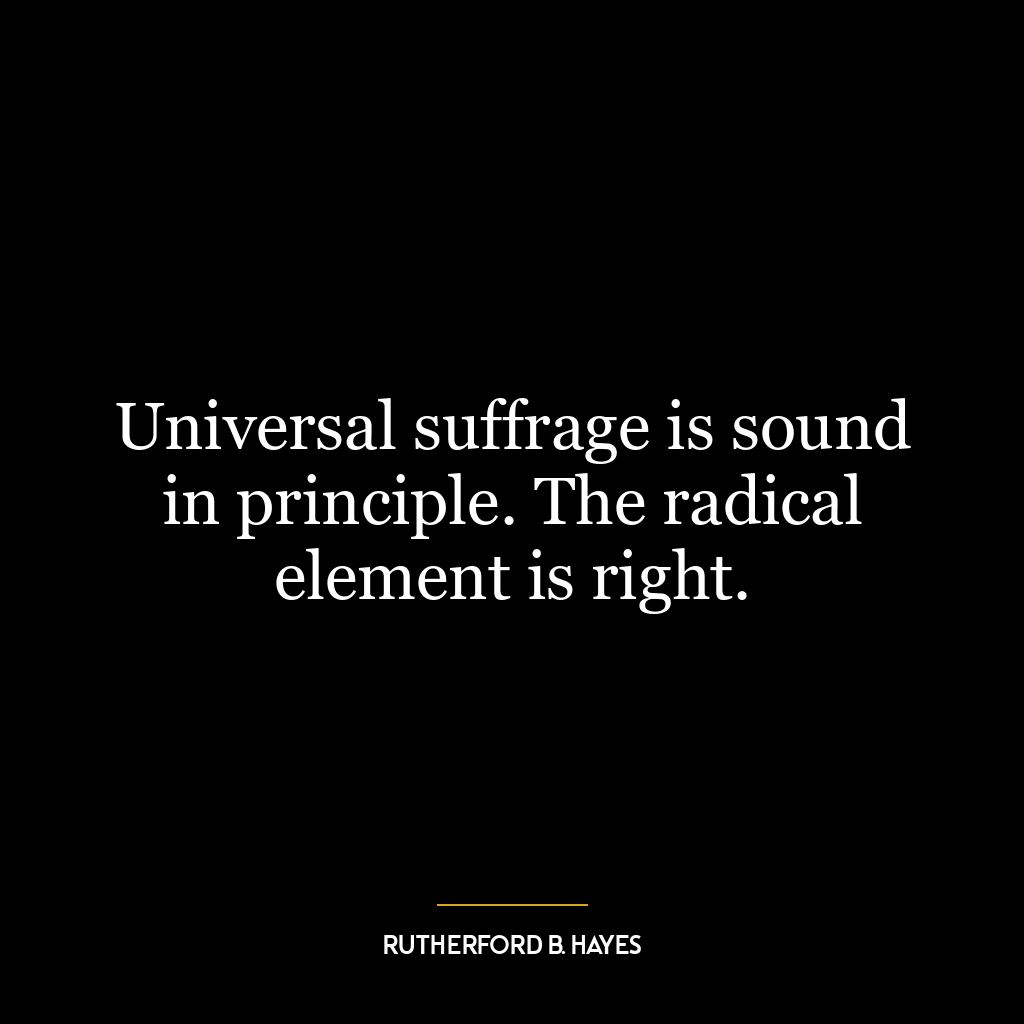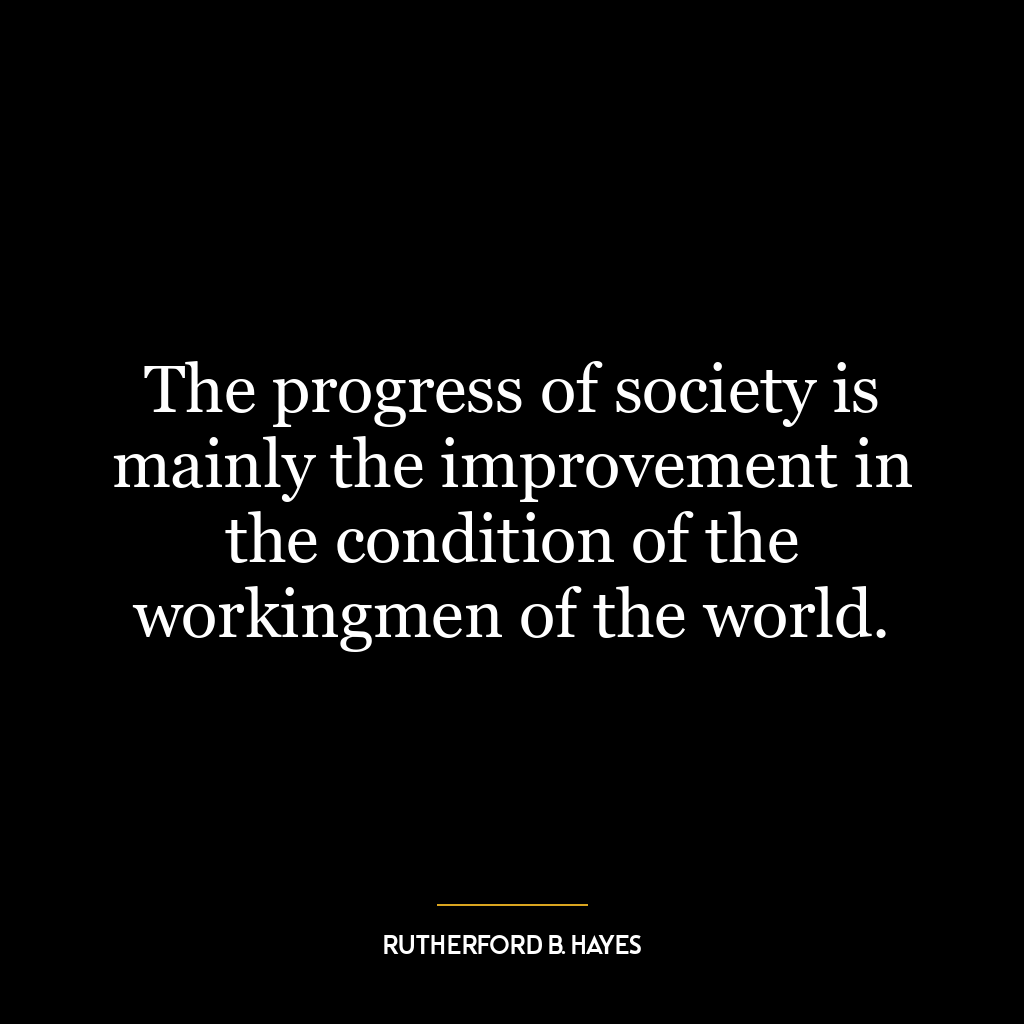Rutherford B. Hayes Quotes
- Lawyer
- USA
- 1822
Rutherford B. Hayes was the 19th President of the United States, serving from 1877 to 1881. He was a lawyer and politician from Ohio, and his presidency was marked by efforts to reconcile the country after the Civil War. Hayes is best known for his role in ending Reconstruction and withdrawing feder…Read More
Rutherford B. Hayes was the 19th President of the United States, serving from 1877 to 1881. He was a lawyer and politician from Ohio, and his presidency was marked by efforts to reconcile the country after the Civil War. Hayes is best known for his role in ending Reconstruction and withdrawing federal troops from the South. He also advocated for civil service reform and worked to improve the country’s infrastructure. Hayes’ notable works include the Compromise of 1877, which settled the disputed 1876 presidential election, and the creation of the Civil Service Commission. He is also remembered for his commitment to education and his efforts to promote racial equality.Read Less
Rutherford B. Hayes was the 19th President of the United States, serving from 1877 to 1881. He was a lawyer and politician from Ohio, and his presidency was marked by efforts to reconcile the country after the Civil War. Hayes is best known for his role in ending Reconstruction and withdrawing federal troops from the South. He also advocated for civil service reform and worked to improve the country’s infrastructure. Hayes’ notable works include the Compromise of 1877, which settled the disputed 1876 presidential election, and the creation of the Civil Service Commission. He is also remembered for his commitment to education and his efforts to promote racial equality.
14 Best Rutherford B. Hayes Quotes
Rutherford B. Hayes Career Highlights
- Education and Early Career: Rutherford B. Hayes graduated from Kenyon College and Harvard Law School, and went on to practice law in Ohio. He also served in the Civil War, rising to the rank of brevet major general.
- Political Career: Hayes served as a member of the U.S. House of Representatives and as Governor of Ohio before being elected as the 19th President of the United States in 1876.
- Civil Service Reform: Hayes was a strong advocate for civil service reform, and he signed the Pendleton Civil Service Reform Act into law in 1883. This act established a merit-based system for federal employment, rather than the previous system of political patronage.
- Economic Policies: During his presidency, Hayes focused on economic policies, including reducing tariffs and promoting civil service reform. He also vetoed a bill that would have provided government subsidies to private businesses, believing it was not the role of the government to interfere in the economy.
- Foreign Policy: Hayes worked to improve relations with Latin America and negotiated a treaty with China that allowed for the restriction of Chinese immigration to the United States.
Key Contributions by Rutherford B. Hayes
- Ending Reconstruction: Hayes is credited with ending Reconstruction in the South by withdrawing federal troops from the region. This decision was controversial, but it helped to ease tensions and promote reconciliation between the North and South.
- Civil Rights: Hayes was a strong supporter of civil rights for African Americans and appointed several African Americans to federal positions. He also worked to protect the rights of Native Americans and signed the Dawes Act, which aimed to assimilate Native Americans into American society.
- Civil Service Reform: Hayes’ advocacy for civil service reform helped to establish a more fair and merit-based system for federal employment, reducing corruption and political patronage.
- Economic Policies: Hayes’ economic policies, including reducing tariffs and promoting civil service reform, helped to modernize the economy and promote fair competition.
What Sets Rutherford B. Hayes Apart
- Contested Election: Hayes’ election in 1876 was highly contested, with several states reporting conflicting results. The election was ultimately decided by a special commission, with Hayes winning by one electoral vote.
- Compromise of 1877: As part of the Compromise of 1877, Hayes agreed to withdraw federal troops from the South in exchange for the Democrats accepting his victory in the election. This decision effectively ended Reconstruction and allowed for the rise of Jim Crow laws in the South.
- Commitment to Civil Rights: Despite the controversial Compromise of 1877, Hayes remained committed to civil rights and worked to protect the rights of African Americans and Native Americans during his presidency.
Takeaways
- Hayes’ presidency was marked by significant political and social challenges, including the end of Reconstruction and the rise of Jim Crow laws in the South.
- His commitment to civil service reform and civil rights set him apart from many of his predecessors and helped to modernize the government and promote equality.
- Hayes’ legacy is often overshadowed by the controversial circumstances of his election and the Compromise of 1877, but his contributions to civil service reform and civil rights should not be overlooked.








![The reform [of the civil service] should be thorough, radical, and complete.](https://quotes.guide/wp-content/uploads/rutherford-b-hayes/rutherford-b-hayes-429884.png)












